Kanu Abandons Plan to Present Defence, Says No Legitimate Charges Against Him The leader of the Indigenous People of Biafra (IPOB), Nnamdi Kanu, has announced that he will no longer proceed with his earlier plan to call witnesses to testify in his defence in his ongoing trial for alleged terrorism-related offences. NOA Says Nigeria’s
Kanu Abandons Plan to Present Defence, Says No Legitimate Charges Against Him

The leader of the Indigenous People of Biafra (IPOB), Nnamdi Kanu, has announced that he will no longer proceed with his earlier plan to call witnesses to testify in his defence in his ongoing trial for alleged terrorism-related offences.
NOA Says Nigeria’s Debt Profile Has Significantly Decreased Under President Tinubu
Kanu made this decision known during Monday’s court session at the Federal High Court in Abuja, presided over by Justice James Omotosho. The IPOB leader, who has been in detention since his re-arrest in 2021, declared that after carefully reviewing the prosecution’s case and the charges levelled against him, he found no valid or legitimate basis upon which the federal government is prosecuting him.
According to him, the evidence and charges presented by the prosecution failed to establish any wrongdoing or criminal intent on his part, making it unnecessary to waste the court’s time by calling witnesses or presenting further arguments.
“I have looked at the entire case file, and there is nothing before this court that constitutes a legitimate charge against me,” Kanu reportedly told the court. “I see no reason to present a defence to charges that do not exist in law. This is not a fair trial, and it is my belief that the right thing to do is to challenge the validity of the proceedings, not to defend myself against an empty accusation.”
Background to the Case
Kanu’s ongoing trial stems from charges filed by the Federal Government of Nigeria accusing him of committing acts of terrorism, promoting secession, and inciting violence through his broadcasts and public statements as the leader of IPOB.
The IPOB movement, which Kanu leads, has long advocated for the creation of an independent state of Biafra, covering parts of Nigeria’s South-East and South-South regions. The group was proscribed by the Nigerian government in 2017 and designated a terrorist organization, though Kanu and his supporters insist that IPOB is a peaceful self-determination movement.
Since his controversial re-arrest and extradition from Kenya in June 2021, Kanu has been facing multiple legal challenges, including a 15-count amended charge filed by the federal government. However, several of those charges have been struck out over time, leaving only a few allegations for which the trial continues.
Kanu’s Shift in Legal Strategy
During previous court sessions, Kanu’s legal team had expressed their intention to call witnesses to testify on his behalf, to counter the federal government’s claims and to demonstrate that the charges lacked factual and legal merit.
However, at the latest sitting, Kanu reversed that decision, saying he would not proceed with presenting a defence. His position, he said, was based on a thorough personal review of the case documents and evidence presented by the prosecution.
According to him, the prosecution failed to substantiate any of the remaining charges, particularly those alleging terrorism and incitement. He reiterated his belief that the case against him is politically motivated and fundamentally flawed.
“I have seen no evidence that proves any of the allegations made by the prosecution. What we have here is not justice but persecution,” he maintained. “Since there are no valid charges before this court, it would be meaningless for me to call witnesses to defend myself against nothing.”
Court’s Response and Judge’s Advice
In response to Kanu’s declaration, Justice James Omotosho noted that while the defendant has the constitutional right to decide whether or not to present a defence, he must formally communicate his decision in writing to the court and to the prosecution.
The judge, therefore, directed Kanu to file a written statement explaining his position and ensuring that a copy is served on the prosecution team. Justice Omotosho emphasized that the written submission would form part of the record of the court’s proceedings and would guide the next phase of the trial.
He also advised Kanu to seek the counsel of experienced criminal law practitioners before finalizing his decision, warning that choosing not to defend himself could have serious legal implications.
“The defendant is entitled to make any decision concerning his defence. However, I advise that such a decision should be taken with full understanding of its legal consequences. It would be in the best interest of the defendant to consult widely with criminal law experts before finalizing this position,” Justice Omotosho stated.
Adjournment and Next Steps
Following Kanu’s statement, Justice Omotosho adjourned the matter to November 4, 5, and 6, to allow both the prosecution and the defence to file and adopt their final written addresses. The judge noted that the adjournment would provide enough time for the parties to prepare their closing arguments, which would help the court determine whether the prosecution has established a prima facie case requiring a defence.
The court’s next sitting is expected to focus on reviewing the written submissions and deciding whether Kanu’s choice to forgo a defence affects the overall trial process.
Legal analysts suggest that Kanu’s decision could either accelerate the conclusion of the trial or open a new round of legal debates over whether the federal government has presented sufficient evidence to sustain its charges.
Public Reaction and Legal Implications
Kanu’s declaration has already sparked mixed reactions among legal observers, activists, and his supporters. While some view it as a bold statement of confidence in his innocence, others caution that declining to present a defence could be risky if the court ultimately rules that the prosecution has made a case requiring a response.
A senior constitutional lawyer, who preferred anonymity, said, “Kanu’s stance reflects his conviction that the prosecution has failed to make out any offence. However, in criminal law, the burden of proof lies on the prosecution, and if the evidence is weak, the court may indeed find no case to answer. But declining to defend may limit his ability to challenge any adverse interpretation of the facts.”
Meanwhile, members of IPOB have reiterated their belief that Kanu’s continued trial is politically motivated. They insist that his detention violates his fundamental rights and that he should be released unconditionally.
As the case heads into its decisive phase in November, all eyes will be on the Federal High Court to determine whether the prosecution’s case stands on solid legal ground or collapses under the weight of insufficient evidence — a verdict that could have far-reaching political and legal consequences for Nigeria’s justice system and the broader question of self-determination in the country’s South-East.



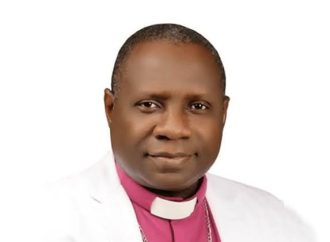
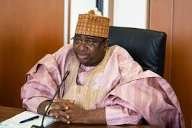
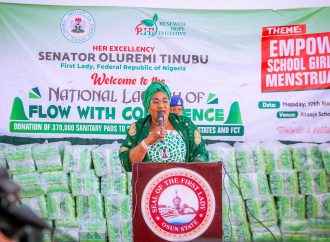
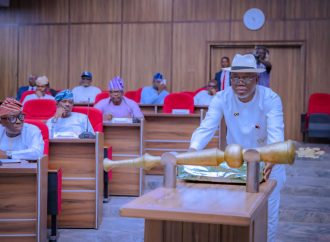
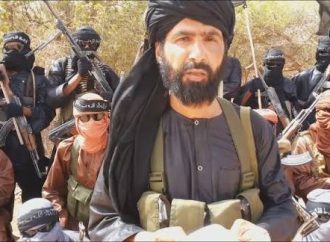



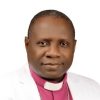
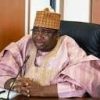
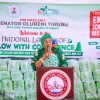
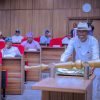




Leave a Comment
Your email address will not be published. Required fields are marked with *